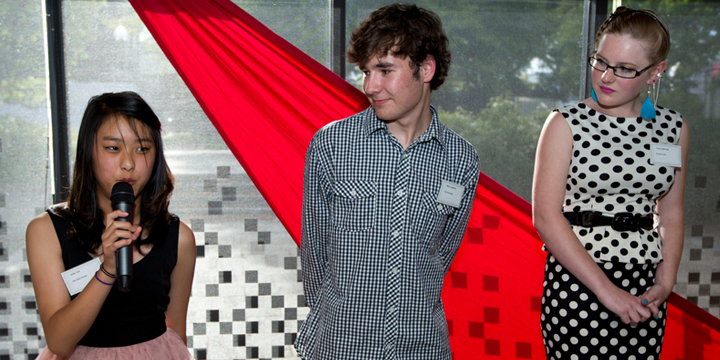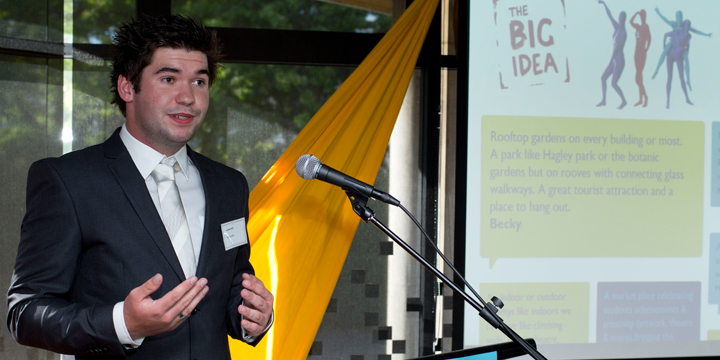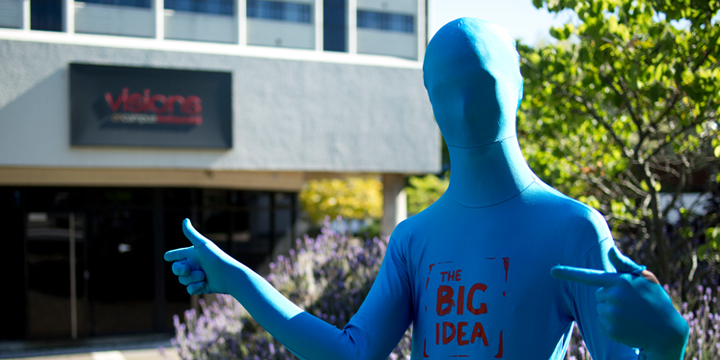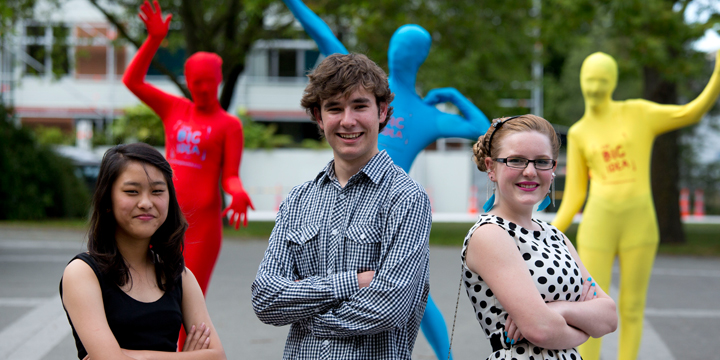The Big Idea competition was the CPIT Foundation’s principal project for 2012. It symbolised a change of direction for the organisation as it identified a need to shift away from purely a grant-based provider to the key role of facilitator.
The Big Idea was also the CPIT Foundations way of demonstrating the need for decision makers to be involved with and understand what young people want for their new city, particularly as the rebuild starts to gain some momentum.
The Big Idea competition was divided into two parts. The first part was to run a competition for marketing and business students studying at CPIT. The Foundation wanted to involve students in the creative process – the idea being that young people know how to reach out to young people – and so requested students design an imaginative marketing plan that would appeal to a younger audience and attract entries.
The second part was to then use the winning marketing plan and support the winning students to run a city-wide competition asking for under 25 year olds to submit an idea that would have the potential to transform Christchurch city into a vibrant and youthful place.
Both the winning CPIT students and the winning young person behind the Big Idea would win $5000.
The winning marketing plan was created by CPIT students James Kelly, Katrina Marshall and Kirstie Jones. Their creative marketing plan opted to utilise social media, a media stunt, visits to malls and schools and a website, to generate ideas to the competition.
Their marketing strategy was a success and more than 600 ideas were entered from youth of all ages from around the city.
Three finalists were selected from those 600 ideas. Judges included the CPIT Foundation trustees, students and members of the Christchurch Youth Council. The finalists were then asked to present their ideas at a cocktail function in front of key Christchurch decision makers.
The three finalists were Harry Loughlan, 17, Judy Yun, 12 and 15-year old Grace Lethbridge.
Judy Yun entered the idea of a creative area where young artists could display their art work; perform on a free stage and where food from international cultures would be sold as part of a youth market.
Grace Lethbridge wanted Canterbury artists to design several large art sculptures with solar panels worked into the design to power parts of the city and offer free Wi-Fi.
Harry Loughnan suggested a purpose-built international arena for robotics competitions to be held.
After much deliberation, the winner was announced. The winner was Harry Loughnan whose unique idea of a robotics arena where young people could compete and get involved in the international world of robot design, building and competing, engaged and sparked the judges interest.
Judges were also intrigued to learn that robotics is actually the fastest growing sport in the world, with more than 4800 Vex Robotics teams globally. In fact, the Vex Robotic World Championship, which is historically held in the United States, attracts more than 10,000 intermediate, high school and university students and teachers from more than 20 countries.
Amazingly, this year, a group of Kiwi teams dominated the 2013 Vex Robotic world champs for the fifth year running. The New Zealand team was crowned world champions in sack attack, the 2013 game concept and finished first and second in the robot skills competition.
Trustees of the CPIT Foundation are now working hard to make Harry’s idea happen. Trustees are making connections and looking for collaborations and are hopeful they will get to launch a robotics arena in the city, in some form or another, in the future.



